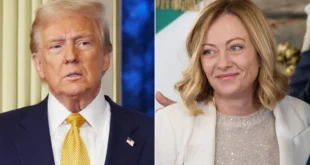Alinan Stevenson
As the prospect of a Kamala Harris administration looms on the horizon, questions arise about how her approach to North Korea might differ from that of previous U.S. administrations. While Harris’s North Korea policy might not diverge dramatically from Donald Trump’s, it would likely demonstrate more interest in diplomacy than the current Biden administration.
Joe Biden’s approach to North Korea has been characterized by a notable indifference. Unlike his predecessors—Clinton, Bush, Obama, and Trump—who each implemented distinct strategies ranging from coercion to engagement, Biden has largely maintained the status quo, reiterating that the door to diplomacy remains open without taking substantial action. This stance is somewhat understandable, given the myriad of international crises that have constrained the administration’s ability to initiate new diplomatic efforts. However, the current situation—a collapsed sanctions regime, rapid advancements in Pyongyang’s nuclear capabilities, a burgeoning alliance with Russia, and deteriorating relations with China—makes this passive approach increasingly untenable. Change seems inevitable, whether under Trump or Harris.
Kamala Harris, being of a younger generation than Biden, brings a different perspective to the table. She witnessed Barack Obama’s near-breakthrough with North Korea in 2012, known as the “Leap Day” deal. Although Trump’s summit diplomacy with Kim Jong Un in Hanoi ultimately fell short, it demonstrated that engagement with Pyongyang does not necessarily equate to appeasement—a concern often voiced by neoconservatives.
Moreover, the Democratic Party’s progressive wing, now more vocal on foreign policy, exhibits less of the traditional hostility toward North Korea seen among centrist factions. This shift in the Overton window has made diplomacy with North Korea less politically costly for U.S. presidents. The recently released Democratic platform, for instance, omitted the demand for the “Complete, Verifiable, and Irreversible Denuclearization” (CVID) of North Korea—a nonstarter for Pyongyang. While Harris’s campaign quickly reassured that the nuclear issue remains a priority, it’s unlikely that a Harris administration would invest significant energy in pressuring North Korea, potentially opening the door to renewed diplomatic efforts.
Interestingly, even South Korea’s hardline conservative government seems to anticipate a diplomatic outreach to North Korea by the next U.S. administration, be it Trump or Harris. Seoul has signaled tentative interest in diplomacy, possibly to preempt Washington’s moves. While Harris might be less inclined than Trump to engage in direct summits with Kim Jong Un, lower-level meetings could occur soon after she takes office.
Engagement with North Korea under a Harris administration could be valuable for several reasons. First, Harris, having witnessed the Biden administration’s overextension across multiple global hotspots—from Ukraine and NATO to the Middle East and China—might seek to reduce the number of active crises by stabilizing relations with North Korea.
Second, the growing challenge posed by China’s rising power will necessitate a strategic refocus on Beijing. Washington will have a strong incentive to address the North Korean nuclear issue to free up resources and attention for the larger threat posed by China, particularly in hotspots like Taiwan and the South China Sea. The current strategy of maximum pressure on Pyongyang risks driving it closer to Beijing, an outcome that would be strategically disadvantageous for the U.S. during any future confrontation with China.
Third, domestic politics will inevitably influence Harris’s foreign policy decisions. Biden’s reactive and uninspired foreign policy has become a liability, and Harris may seek to demonstrate more assertive leadership by achieving early diplomatic successes. With relations with China and Russia strained beyond repair, North Korea presents one of the few remaining opportunities for a meaningful diplomatic breakthrough.
In conclusion, while Harris’s North Korea policy may differ in style rather than substance from Trump’s, both would likely treat the issue as secondary to broader great power competition. Denuclearization remains a distant goal. However, whereas Trump might pursue high-profile summits, Harris would likely prefer a more cautious, step-by-step approach, working closely with allies like South Korea and Japan to manage the complex dynamics of the Korean Peninsula.
 Geostrategic Media Political Commentary, Analysis, Security, Defense
Geostrategic Media Political Commentary, Analysis, Security, Defense





